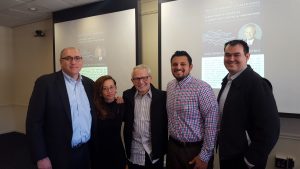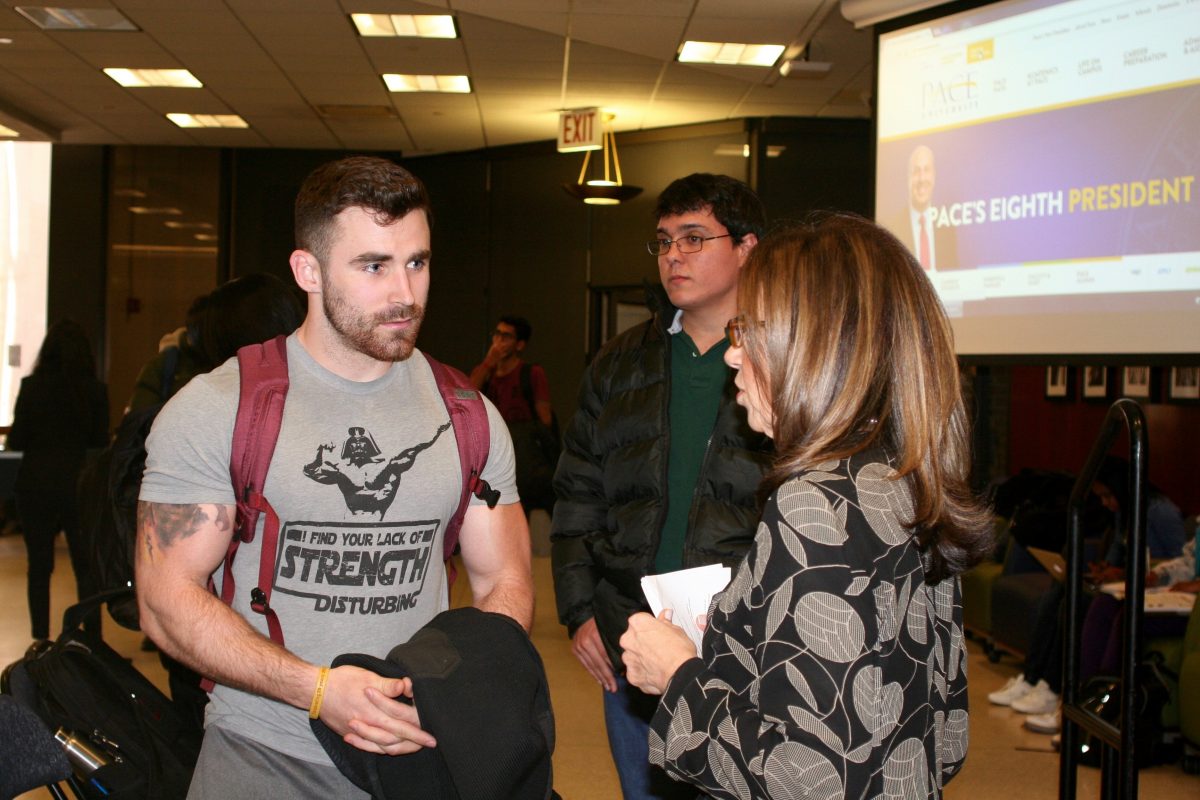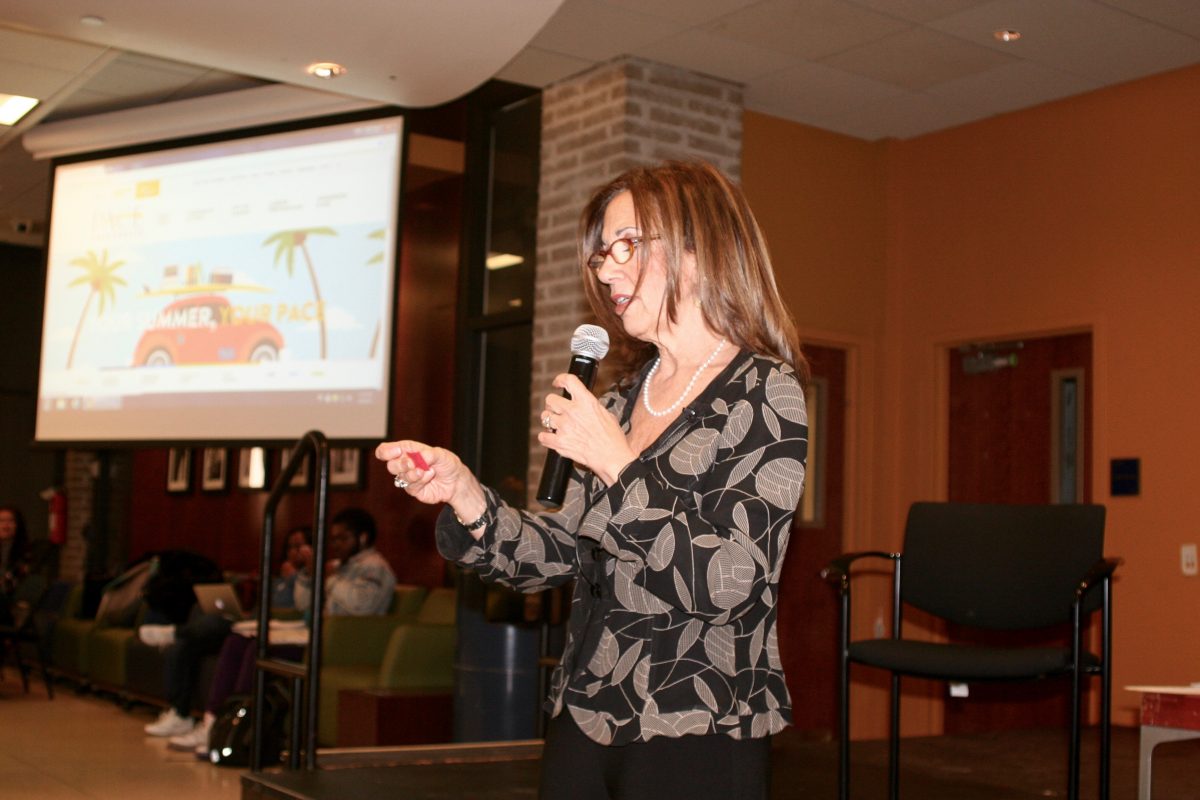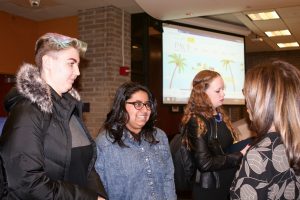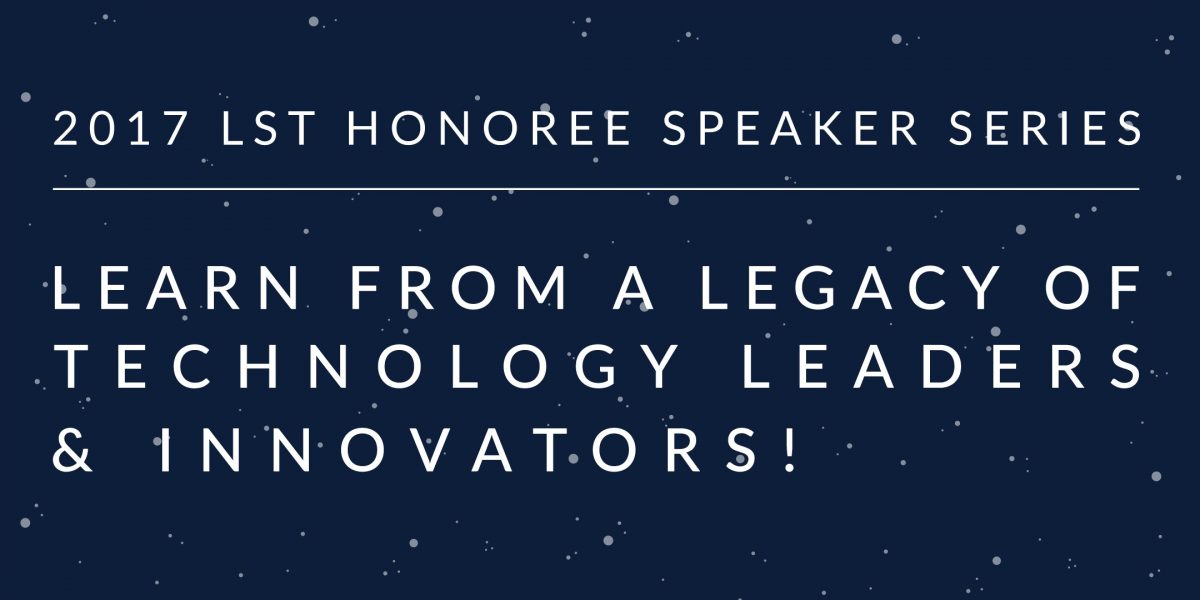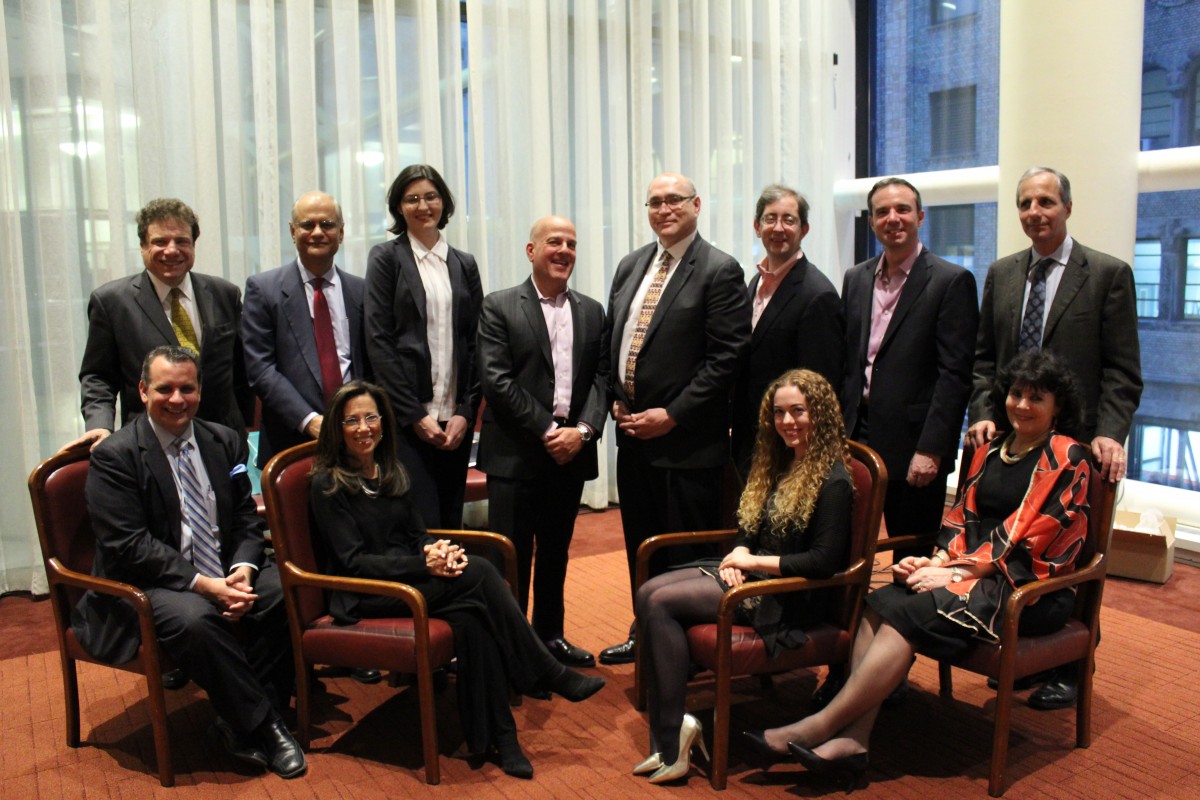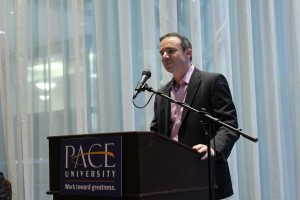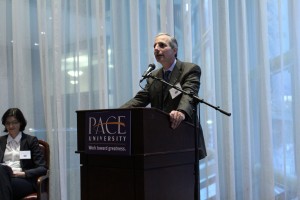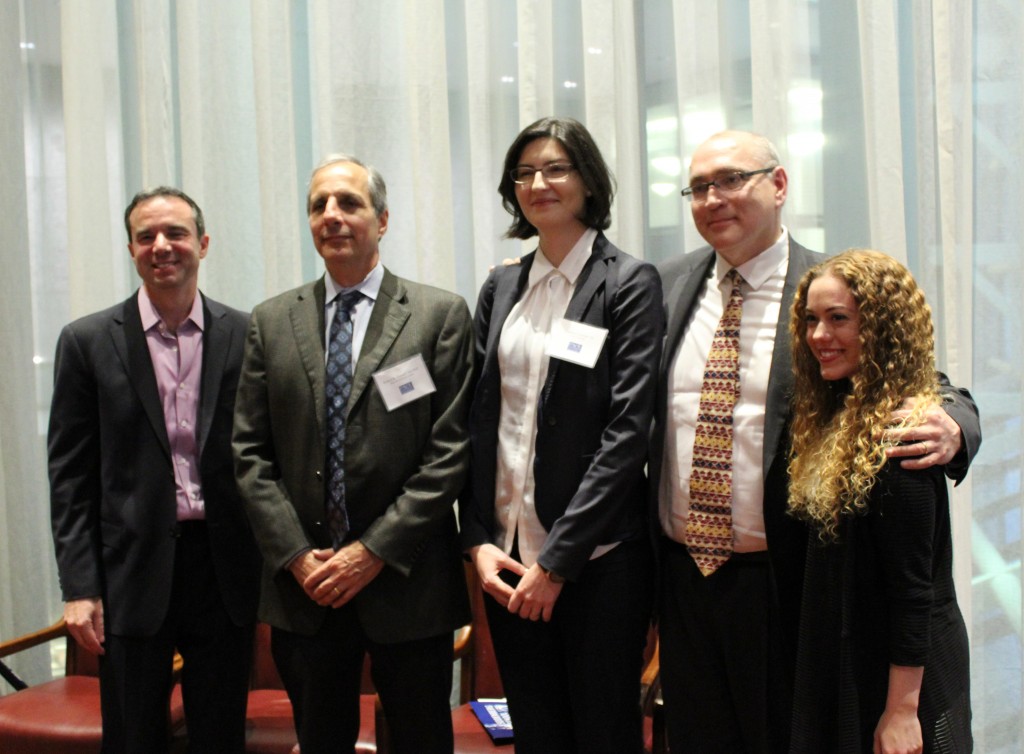Now in its 22nd year, the Leadership & Service in Technology (LST) award is bigger and better than ever, and this year’s celebration was an unforgettable evening.
On Monday, April 24, 2017, an impressive company of Seidenberg supporters came together as we honored Senior Executive Vice President and CIO at BNY Mellon Suresh Kumar for his pioneering leadership and innovative thinking in transforming finance and technology practices throughout his exceptional career.
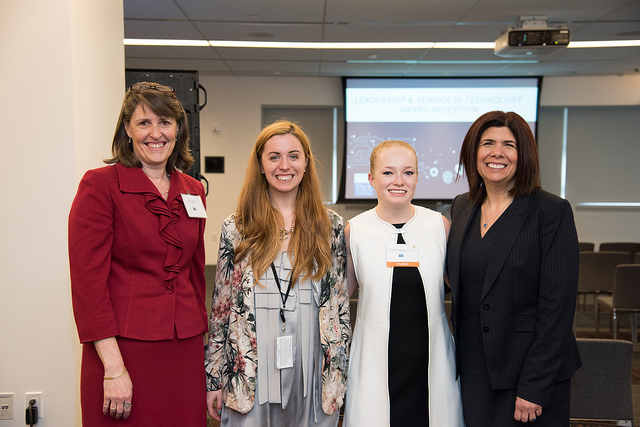
BNY Mellon kindly provided the space and the catering for the LST awards at its downtown location. Guests enjoyed appetizers and a full bar during the networking hour before the main event. The room was packed with many of our dearest friends, including Seidenberg alumni, business partners, and friends from the Pace community. It was a warm atmosphere as people greeted old friends they hadn’t seen in a while, made new ones, and shared a fun evening and business cards alike. Seidenberg students were also present to give demonstrations of their projects facilitated by the NYC Design Factory.
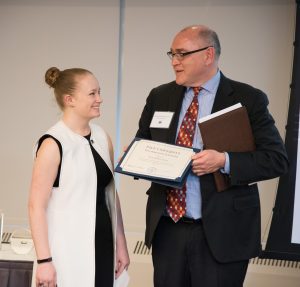
When awards time came, guests were seated and Dr. Jonathan Hill, Dean of the Seidenberg School, introduced the first speaker of the night – our student, Niamh Fitzsimon. Niamh is an honors student, vice president of Pace Women in Tech, and resident Googler (she’s interned there twice so far and will do again this summer!).
“Because of you, I have been able to push myself above and beyond what I could imagine,” Niamh said. “You provided me a platform to grow my confidence, network, and skills, and I am extremely grateful for your contributions towards the education of myself and my peers. I am highly honored to share the effect of your donations on my community.”
Following Niamh’s remarks, Lucille Mayer, the Chief Information Officer of Client Experience Delivery at BNY Mellon took to the stage to introduce the keynote speaker. Lucille has worked with the evening’s honoree Suresh Kumar for over 25 years. “Suresh is not only a visionary, as you’ll hear for yourself, but he is also a leader in championing and developing talent,” she said.
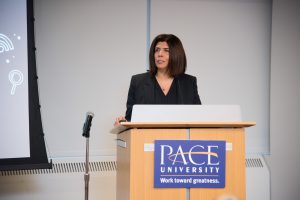
Lucille briefly discussed success in the tech industry, including the top tech trends for the year such as augmented reality, which has seen a swift increase in recent years due to the creation of virtual reality headsets and the release of mobile app games like Pokemon Go.
“Success depends upon the user or the client experience of the technology,” she said. “Technology is no longer about being the guy or the woman behind the curtain . . . technology is the business.”
She then introduced the evening’s keynote, Marie Wieck, General Manager at IBM Blockchain. Marie discussed the exponential growth of data and the benefits of diversity.
“Some of the stats in tech right now are quite frankly astonishing,” Marie said. “Think about data. In the last two years we have created more data than we have created as a species in the time period prior.”
She added: “Those people who can mine insights of out that data are the people who are going to accelerate their business.” Data analytics is certainly a burgeoning industry right now as companies scramble to make sense of the immense volume of data that is now collected through websites, social media, and other digital interactions.
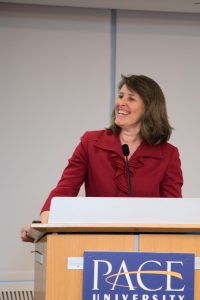
Marie also spoke towards greater diversity in the workplace, particularly regarding more women in technology. “What constitutes the best performance you can get?” she asked. “New perspectives that help you see things in a different way and that is fuel for innovation.
“It’s not those who have the highest IQ but those who have the biggest EQ [emotional quotient] . . . and what brings higher EQ? More women.
“When you have three or more women on a board, you begin to get financial results.”
Marie noted that 36% of the Seidenberg School’s student base are women compared to a 20% national average – a statistic we are proud of and are committed to improve.
“You have to teach people the art of the possible . . . 74% of girls are interested in STEM, but only a third of them pursue it,” Marie said. Many of the girls who pursue STEM had mentors, teachers, counselors who pushed them.
“When you think about gender partnership, role models don’t have to be people you know. We also have to advocate for the people you don’t know.”
Marie finished with an inspirational request. “We know Pace is a trailblazer. We know BNY Mellon is a trailblazer . . . mentor a student. Share the opportunity to highlight someone who is doing something exceptional. Give people a voice. Share the wealth.”
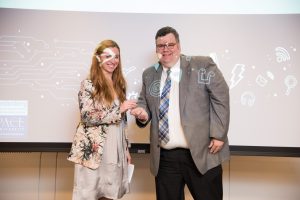
After Marie’s keynote, alumni and Seidenberg Advisory Board member, Matthew Knell, introduced the Emerging NYC Innovator Awardee, Sara Chipps. Sara is the CEO of Jewelbots, which produces programmable friendship bracelets that can connect with other bracelets in the surrounding area, enabling wearers to send each other secret messages using code. The bracelets are aimed toward middle-school girls to encourage them to get into STEM education.
As Jonathan Hill remarked after her presentation, “Technology isn’t about selling for top dollar; it’s about giving back in some way.”
Dr. Hill then introduced the honoree of this year’s LST award.
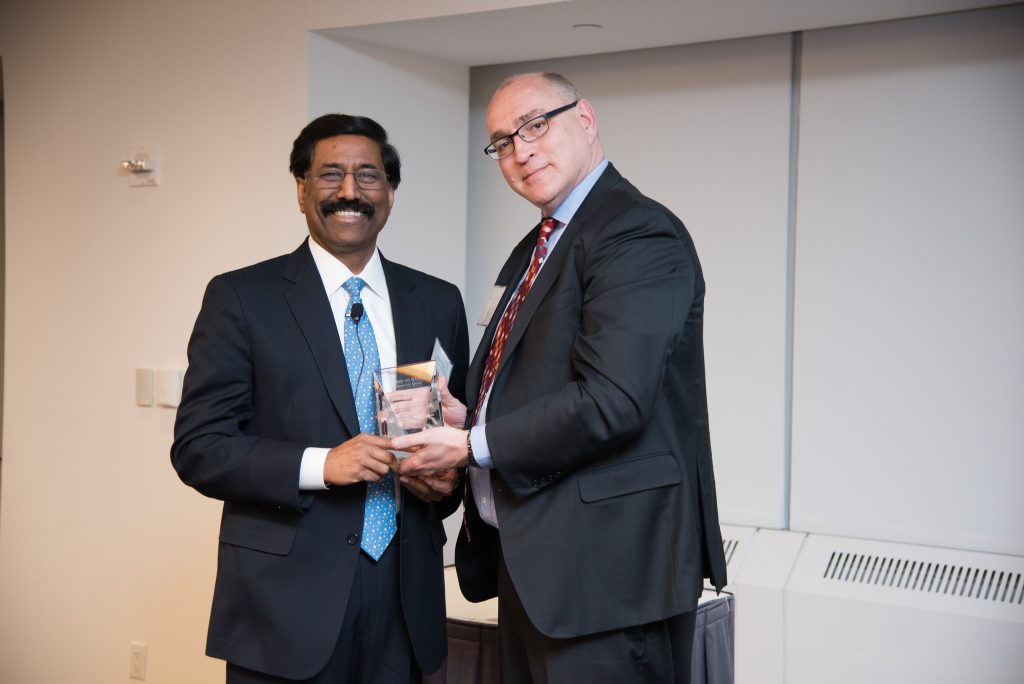
Suresh Kumar is the Senior Executive Vice President and CIO for BNY Mellon, where he is leading the Client Technology Solutions organization to become the industry leader in delivering innovative solutions that enable clients and employees to succeed.
Suresh gave a wonderful presentation with excellent advice for our students and the community overall. His exemplary leadership style was apparent as he spoke: “I’m really privileged every day to work with an amazing group of colleagues all over the world,” he said.
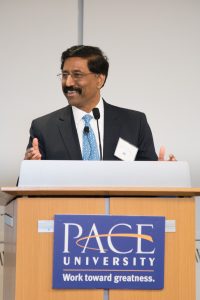
“We all come from different places, different backgrounds, but each of us rely on education to get where we are. And the Pace Seidenberg School of Computer Science and Information Systems has long leveled the playing field . . . regardless of gender, ethnic background, and income.”
The LST award honoree went on to talk about how companies should embrace innovation and disruption for great results. Using Amazon as an example of a company that constantly innovates its techniques, offerings, and practices, Suresh warned against remaining stagnant, particularly when your competition does not.
He also had four ‘rules to live by’ (or at least conduct business by).
1 – Focus on execution. Being the best is better than being first
Innovation is important, but means nothing if you have a bad product. Google wasn’t the first search engine, but it was the best when it was released. Doing a phenomenal job is 1% innovation, 99% perspiration.
2 – Evolve your business model
It’s important to keep up with (and create) what people want. Suresh described a period of four phases of how business models have evolved and have to evolve to stay ahead: the arrival of the internet in the mid-90s, the social media revolution in the mid-2000s, collaborative spaces (now) and autonomous working (emerging). Successful business models were platform-based and enabled consumers and providers to get together and create something valuable
3 – Reduce latency between end users and developers
Skype had 27 engineers. What’s App had 33. Instagram had 13. What made them create such a powerful product in such a short period of time? Constant innovation, and enough people on the team!
4 – Organize innovation efforts by service
Unfortunately, the IT department in many companies is still not considered to be the backbone of operations. That said, an emerging model of IT looks promising – teams are small, self-governing, and are empowered to make decisions and make a difference in a large company. When given the freedom to innovate, IT teams can change the whole way an organization works for the better.
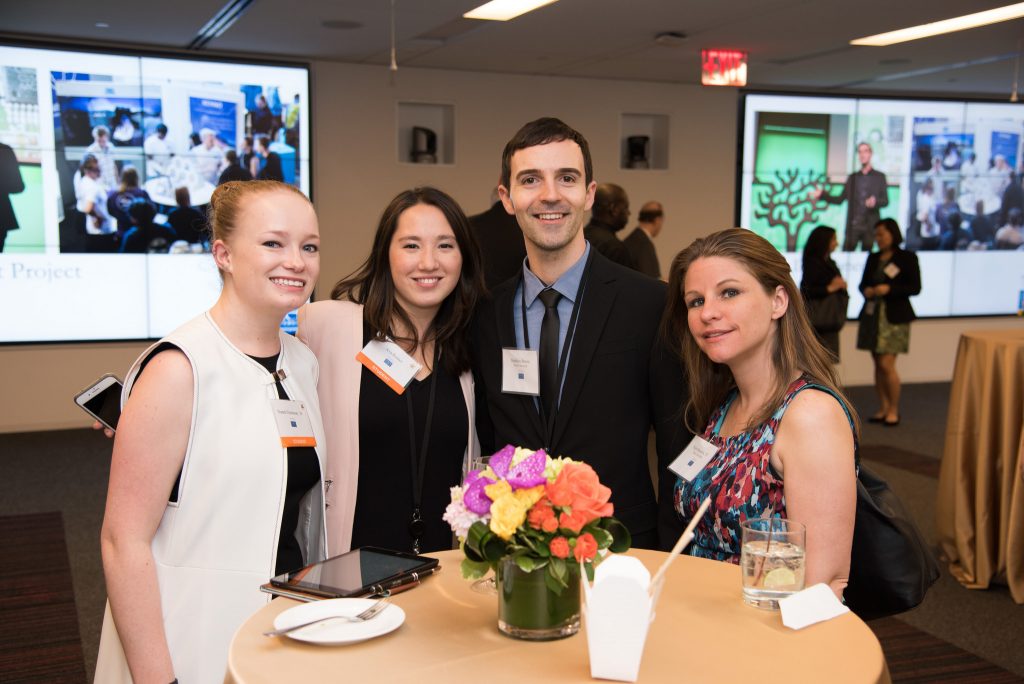
We are truly delighted to honor Suresh Kumar and his wonderful work as a leader in technology and in his work with staff at BNY Mellon.
Thank you to Suresh Kumar and BNY Mellon for your contributions to the Seidenberg School and for hosting this year’s LST Award reception, ensuring it was a fantastic night for all.
“The gifts you have provided tonight are much needed,” Jonathan Hill told guests in his closing remarks. “Thank you.”
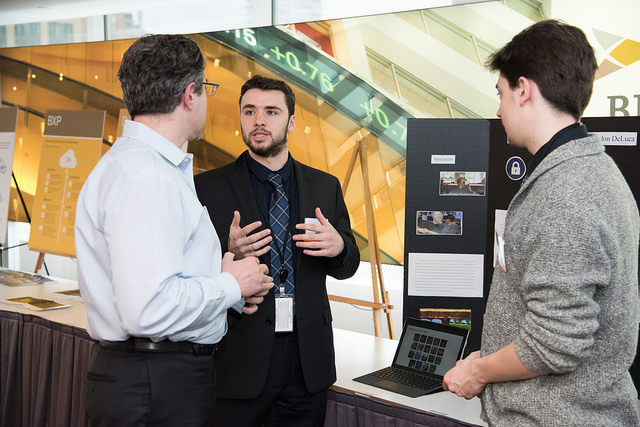
Our deepest gratitude also goes out to everybody who attended the event and showed their support to the School, whether by buying tickets or donating. Thank you to Lucille Mayer, Marie Wieck, Matthew Knell, and Sarah Chipps. Thanks also go to Deth Sao, our director of development, for her unending commitment to organizing an incredibly successful event.
We look forward to seeing you all again next year!


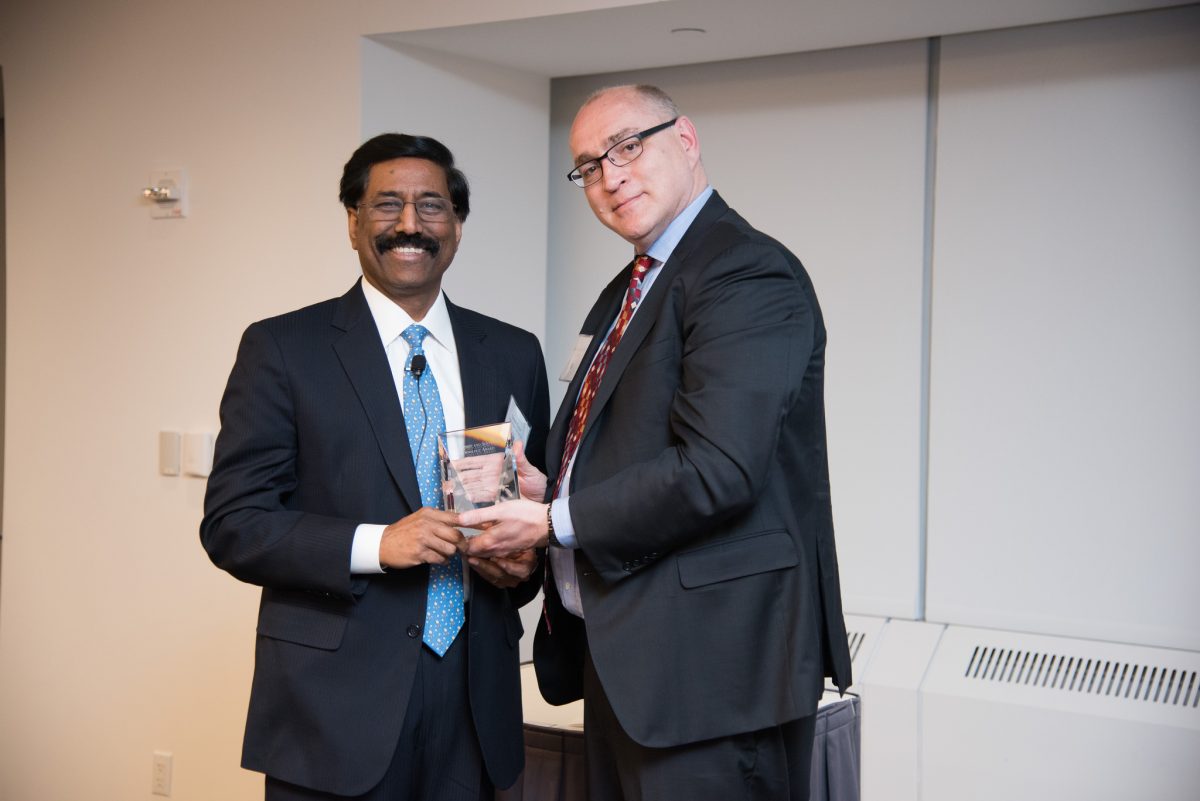
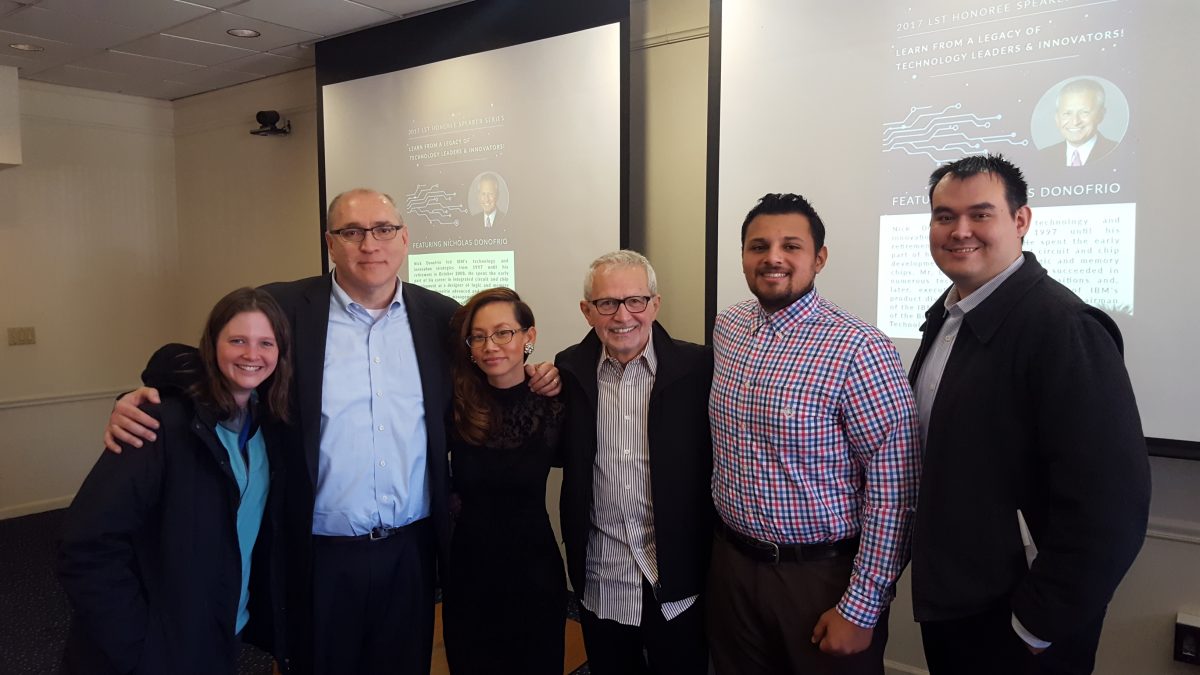
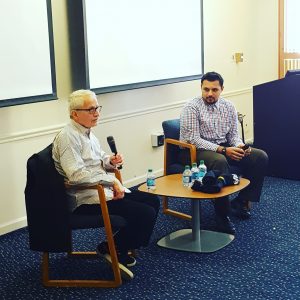 Nick Donofrio led IBM’s technology and innovation strategies from 1997 until his retirement in October 2008. He spent the early part of his career in integrated circuit and chip development as a designer of logic and memory chips. In the years that followed, he advanced and succeeded in numerous technical management positions and, later, executive positions in several of IBM’s product divisions. Notably, he was vice chairman of the IBM International Foundation and chairman of the Board of Governors for the IBM Academy of Technology.
Nick Donofrio led IBM’s technology and innovation strategies from 1997 until his retirement in October 2008. He spent the early part of his career in integrated circuit and chip development as a designer of logic and memory chips. In the years that followed, he advanced and succeeded in numerous technical management positions and, later, executive positions in several of IBM’s product divisions. Notably, he was vice chairman of the IBM International Foundation and chairman of the Board of Governors for the IBM Academy of Technology.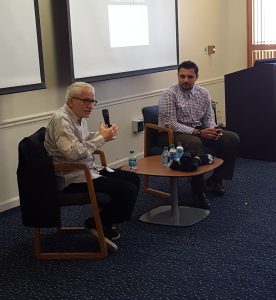 He also spoke about how important it is to be honest. “Transparency, openness, collaboration,” Nick said. If something goes wrong, it is always better to be upfront about it so a solution can be figured out sooner. “We’re going to find out the truth in the end anyway. Because that’s how it works. You may as well tell me now that you screwed up, that the project is 6 months late, that you’re not going to deliver, you might as well tell me NOW so I can help you.”
He also spoke about how important it is to be honest. “Transparency, openness, collaboration,” Nick said. If something goes wrong, it is always better to be upfront about it so a solution can be figured out sooner. “We’re going to find out the truth in the end anyway. Because that’s how it works. You may as well tell me now that you screwed up, that the project is 6 months late, that you’re not going to deliver, you might as well tell me NOW so I can help you.”